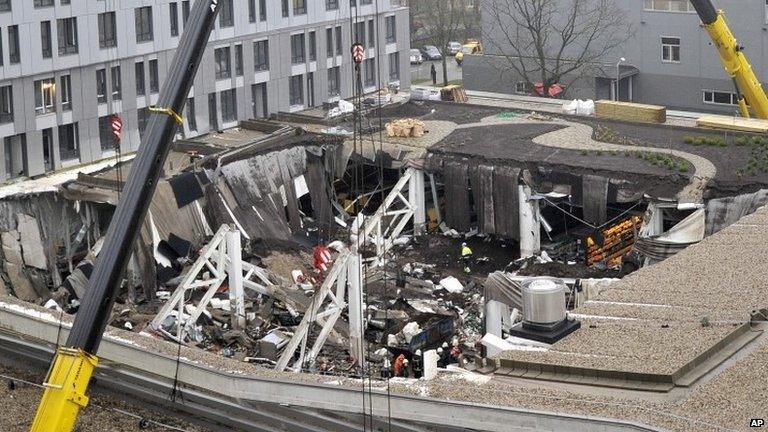Latvia hopes euro will bring stability
- Published
Latvia is split over the adoption of the euro
On the road from St Petersburg to Valmiera in northern Latvia, an ornate tower is all that remains of the tsarist-era manor house Valmiermuiza. Traditional Latvian beer was once brewed here for thirsty Russian aristocrats on their way to Western Europe.
Now, as the eurozone prepares to take in Latvia on 1 January, it looks like Western Europe is heading this way instead.
Today the manor is a romantic ruin. But in the grounds beer is being made here once again.
The owner of Valmiermuiza brewery, Aigars Rungis, says the euro will give his business an extra boost.
The malt, hops and specialist brewing equipment all come from Germany, so at the moment buying ingredients also means having to buy euros - and paying hefty bank charges.
Once Latvia has the euro, the cost of currency exchanges will vanish.
Aigars sees the single currency as the final step in Latvia's integration into Europe, away from domination by the former colonial master Russia, which occupied Latvia for much of the 20th Century.
"I think being part of the euro will help us to feel more safe economically, less that we can be influenced by outside, by Russia," he says.
Stability
But the real argument for business owners is an economic one.
"Over the last five years there is a lot of discussion: will Latvia devalue or not devalue?" says Aigars,
"When we have the euro, I can be sure that the currency will not devalue, then I could really speak with banks and plan my business. And in general business will feel more stable in Latvia."
According to polls, the majority of businesses in Latvia tend to agree with Aigars. They believe borrowing costs will go down and foreign investment will go up.
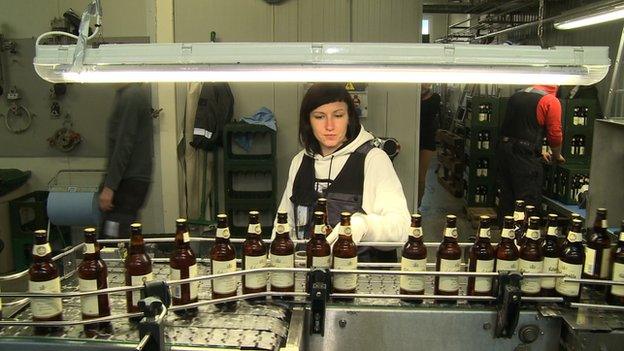
Businesses are more enthusiastic about joining the euro than many ordinary Latvians, polls show
When the European Commission announced in June that Latvia had met all the economic targets to switch to the euro, it was seen as an endorsement of Latvia's economic health.
Rating agencies raised the country's credit rating by one notch. Latvia's government now predicts that once the country adopts the euro in 2014 its rating should go up still further, to an "A" category.
This increased confidence should mean Latvia will be able to borrow more cheaply on international markets. And businesses hope this will bring down the high interest rates charged by banks for business loans.
Inflation worries
But not everyone is as enthusiastic about the euro as business owners. According to a survey of 1,000 people by pollster SKDS, 58% of Latvians oppose the currency switch, with just 20% in favour.
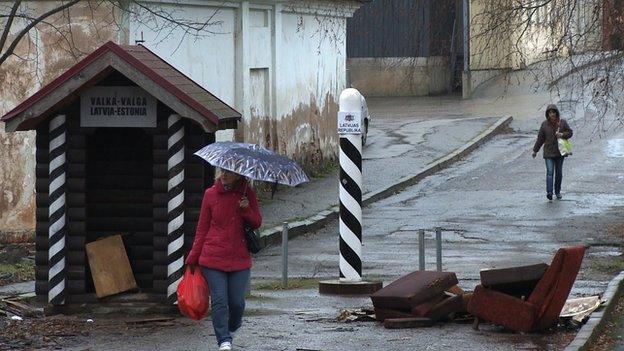
People saw prices go up in Estonia when it adopted the euro; now they fear the same will happen in Latvia
Take the Latvian border town of Valka, for instance. Half of this town is in Estonia, which adopted the euro three years ago - so people here go in and out of the eurozone everyday, often shopping in the Latvian part where many goods are cheaper.
Chatting to Latvians as they cross the invisible border, it is impossible to find anyone who is positive about the euro.
"Prices shot up in Estonia when they got the euro. And it's already happening here in Latvia. There's a shop I go to once a week, and every time I go prices are little bit more expensive," says one elderly woman.
"While we have our own currency, we are independent. But when we lose that, we'll lose our autonomy," says a middle-aged woman.
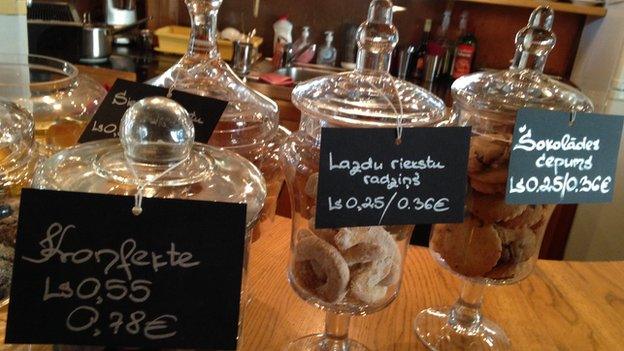
Soon the euro will be the only currency accepted in Valka, and prices in lats will disappear
'Not a currency crisis'
But the Latvian government says the situation was similar in Estonia before it adopted the euro, and that now the single currency there has widespread support.
The driving force behind Latvia's desire to join the eurozone was Valdis Dombrovskis.
Taking over as prime minister at the height of the crisis in 2009, he stood up against international pressure to devalue Latvia's currency, in order to stay on schedule with euro adoption in 2014.
Instead he kept the peg with the single currency, which meant having to pursue a painful and controversial policy of severe cuts in wages and benefits, and turned around Latvia's economy, which is now the fastest growing economy in the European Union.
Mr Dombrovskis astounded critics by not only surviving politically, but even being re-elected - twice.
Earlier this year, I asked him why, despite the ongoing crises in the eurozone, Latvia's government still wanted to join.
"This crisis is not a currency crisis. If you look at the euro as a currency it's doing just fine," he said.
"What we are really seeing is a financial and economic crisis in certain eurozone countries. But we also see that this problem is being addressed through strengthened fiscal discipline and stricter economic governance."
Last currency?
But an unexpected tragedy will prevent Mr Dombrovksis from celebrating what was expected to be the crowning achievement of his premiership.
In November the roof of a supermarket in Riga collapsed, killing at least 54 people. The nation is still reeling from the shock.
A week later, Mr Dombrovskis resigned, accepting political responsibility for the tragedy. The move was unexpected but was seen as an unusually principled act.
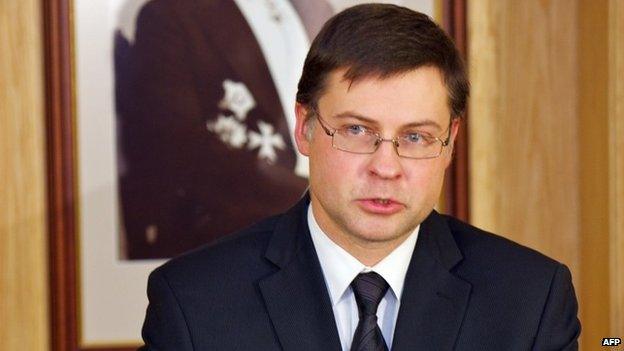
Valdis Dombrovskis resigned from office in November; he was Latvia's longest serving prime minister
The prime minister's resignation also meant that the government was dismissed. So Latvia's parliament now has to form a new governing coalition.
Analysts say that although losing a prime minister as credible at home and abroad as Mr Dombrovskis is a blow, a loss of investor confidence in Latvia's economic health is unlikely: the euro is seen by international investors as an anchor for the country's future economic policy.
And the new government will look very similar to the outgoing one, says Latvia's Finance Minister Andris Vilks.
"No-one is going to change, because society and business want to see stability and predictability of conditions. No one is going to change that."
And when it comes to currency reform, Latvians have certainly had enough of change.
Throughout a turbulent 20th Century of foreign occupation Latvia experienced six different currencies: from Hitler's reichsmark to Stalin's rouble.
The euro will be the seventh. Yearning for stability and predictability, most Latvians hope this currency will also be the last.
- Published22 August 2023
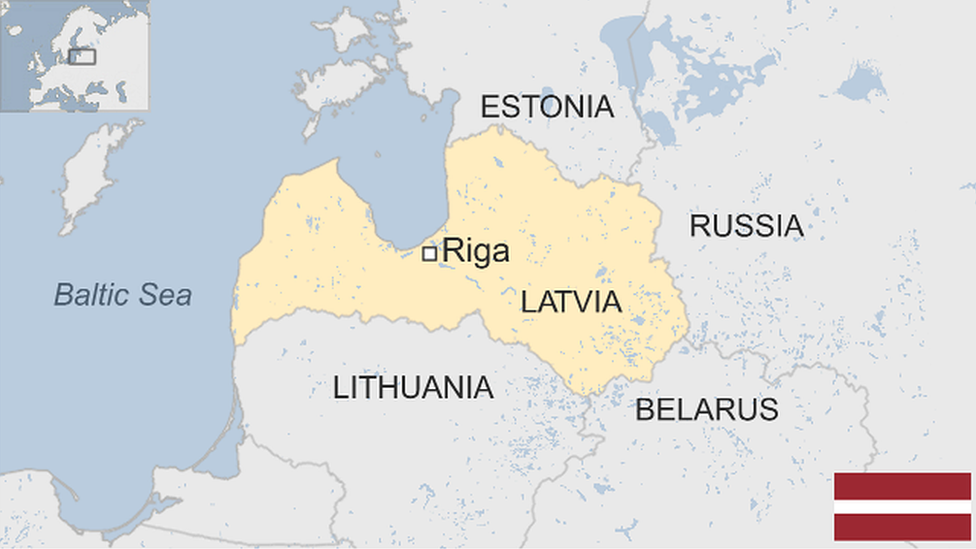
- Published5 June 2013
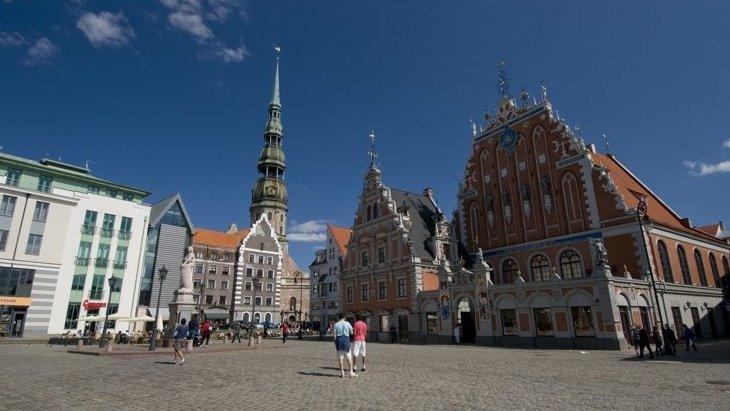
- Published27 November 2013
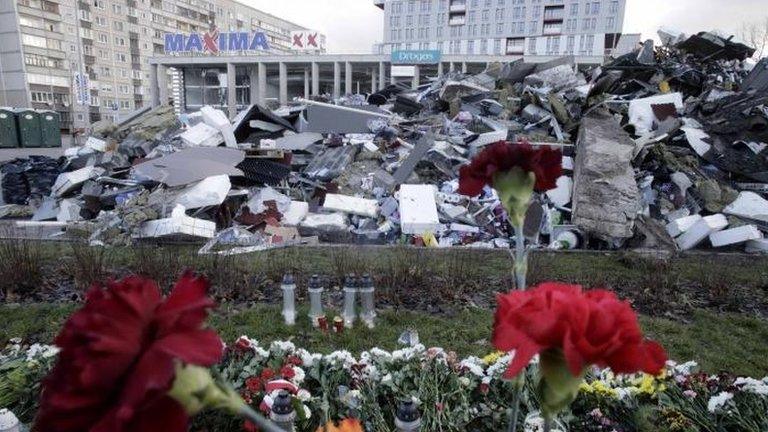
- Published22 November 2013
